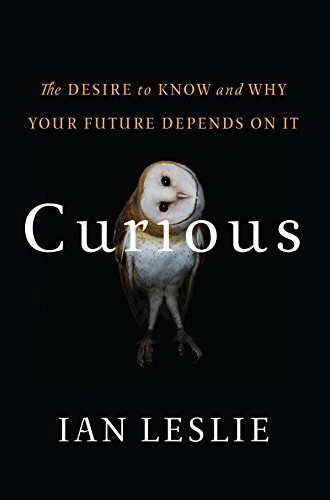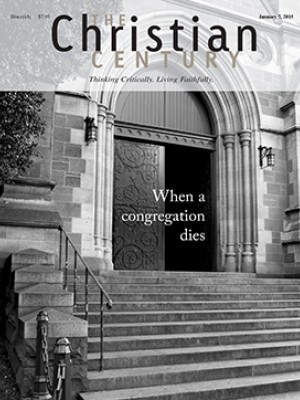Curious, by Ian Leslie
Curiosity seems to be a word of the moment. It’s a staple of TED lectures, a buzzword of educational reformers, and an advertising theme of Vanity Fair magazine. (“Were you born curious?” asks an ad. “Tell us your curiosity story.”) Now comes this book by Ian Leslie, full of such stories, and a very curious book it is.
Almost every page of Leslie’s book springs a surprise. Stories that sound inspiring prove cautionary: for example, a man learns over two dozen languages, only to rue that he has not chosen one for deeper study. Stories that sound cautionary—two boys with a loaded pistol—demonstrate a hunger for knowledge.
Read our latest issue or browse back issues.
In Leslie’s telling, curiosity is far from a valued quality. It has long been disparaged by schools, businesses, and especially the church. Augustine, he notes, equated curiosity with temptation. Even today the word suggests something not quite right. On the other hand, he says, “we romanticize the natural curiosity of children and worry that it will be contaminated by knowledge, when the opposite is true. We confuse the practice of curiosity with ease of access to information and forget that real curiosity requires the exercise of effort.”
Counterintuitively, Leslie argues that modern conveniences undermine curiosity rather than encourage it. Because we can answer almost any question by checking our smartphones, our mental muscles have atrophied. Worse still, our attention has become diffuse. “Unfettered curiosity is wonderful,” he says, “unchanneled curiosity is not.”
But even as he argues for sustained exploration of a single field or theme, Leslie leaps from one example to the next. His interests take him from Edmund Burke to Lady Gaga, from business school to the Kalahari Desert. In the span of two pages, he draws on F. Scott Fitzgerald, Agatha Christie, The Wire, Citizen Kane, Shakespeare, physicist Freeman Dyson, inventor Ray Dolby, Einstein, and the Rubik’s Cube. Leslie is a diverting writer of the Malcolm Gladwell school—sometimes too clever by half.
So it’s not surprising that he appreciates the power of story. We will keep watching even a bad movie, he says, just to see how things turn out, because we are so curious about the experiences of other people. This empathic curiosity is one of the distinguishing gifts of humankind. All the sadder and more ironic, then, that we can be so lazy in our relations. As one wit has said, “I possess a device, in my pocket, that is capable of accessing the entirety of information known to man. I use it to look at pictures of cats and get into arguments with strangers.”
Leslie is no Luddite; he merely believes that true learning requires effort. Curiosity doesn’t deserve the name without it. Knowledge can’t be retained without it. But here again Leslie has a surprising perspective. In one breath he celebrates the young Abraham Lincoln, who came from unlettered folk and had to work hard for his lessons. In the next breath, he reflects poignantly on the limits of effort—on why those with advantages add to them and those without them fall farther behind.
Intellectual curiosity, he decides, is not enough on its own—it must be planted in the fertile soil of a classical education. Otherwise we miss cultural references and fail to make connections. At times he takes on a polemical tone as he defends educational classicists like E. D. Hirsch and draws the reader into yesterday’s minor controversies.
More often Leslie’s wide-ranging mind refuses to take sides. The Internet is not to blame for stupidity: “The only person or thing that can make you stupid, or incurious, is you.” He refuses to disparage mundane tasks in menial jobs, for they can be enlivened by questions. As part of his tendency toward balance, we get a retelling of the oft-heard adage about the fox and the hedgehog, with Leslie suggesting that what a business needs is a foxhog.
In a chapter on global conflicts, he suggests that a sympathetic imagination can make peace between any warring parties. He quotes retired general Stanley McChrystal, who led American forces in Iraq:
When we first started, the question was, “Where is the enemy?” That was the intelligence question. As we got smarter, we started to ask “Who is the enemy?” And we thought we were pretty clever. And then we realized it wasn’t the right question, and we asked, “What’s the enemy doing or trying to do?” And it wasn’t until we got further along that we said, “Why are they the enemy?”
At his best, which is often, Leslie evokes wonder at the world around us. In the brilliant final chapter, about a longtime code breaker, he draws a lovely distinction: “A puzzle is something that commands our curiosity until we have solved it. A mystery, by contrast, never stops inviting inquiry. . . . When we come across a puzzle of any kind, we should always be alert to the mystery that lies behind it.”
Curious brings to mind another recent book, On Looking, by Alexandra Horowitz. The eloquence of this book comes in its limited scope. Horowitz keeps walking around one city block near her home, first with her toddler son, then with a geologist, a graphic designer, an artist, a physician, and so on—11 companions in all—and moves toward a deeper and deeper understanding of a neighborhood she once thought she knew fairly well. The experience is revelatory.
If Leslie were to slow down from his brisk tour and walk around Augustine’s block one more time, he might be surprised to find how much they agree. “Free curiosity has a greater power to stimulate learning than coercion,” the great saint wrote in the Confessions. “Yet the free range of curiosity is channeled by discipline under Thy law.”







